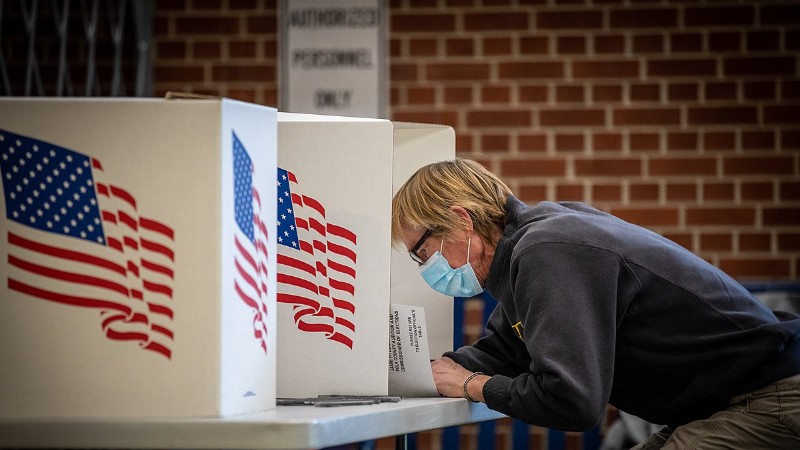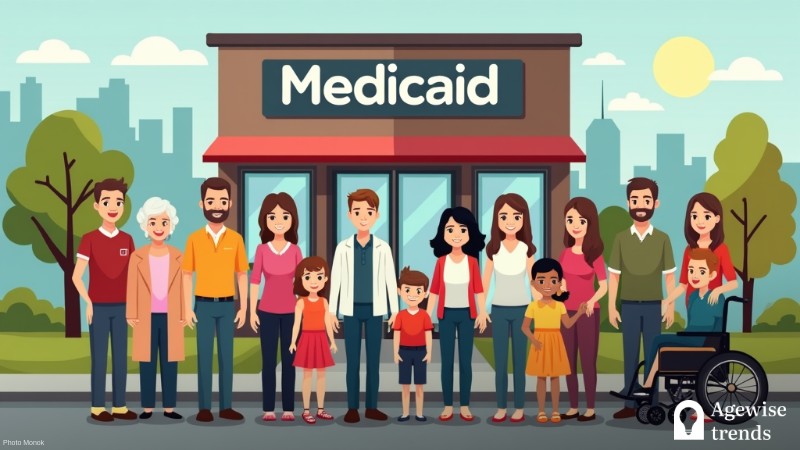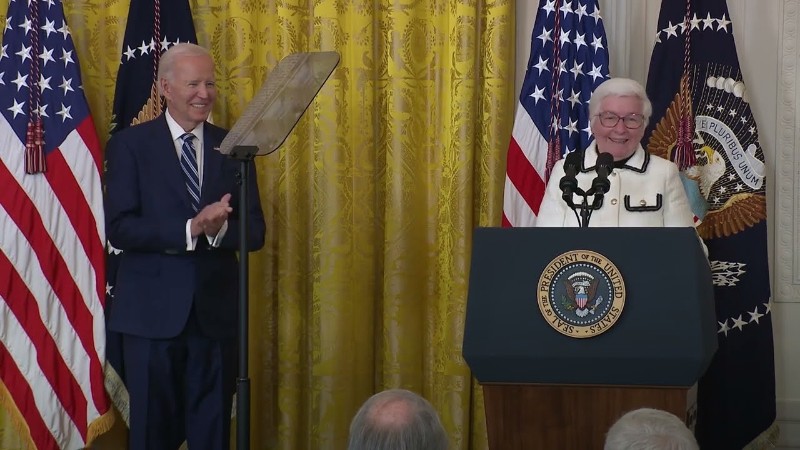The Medicare program is set for sweeping changes in 2025, and seniors should prepare for substantial improvements in drug cost limits, mental health access, and affordable medication availability. These updates aim to simplify healthcare management, reduce financial burdens, and ensure seniors have greater access to critical services. Understanding these changes can help Medicare beneficiaries plan their healthcare effectively and make informed decisions during open enrollment.
Key Takeaways
Medicare’s 2025 updates aim to simplify healthcare management, reduce financial burdens, and ensure seniors have greater access to critical services.
- A $2,000 annual out-of-pocket cap on prescription drug expenses will be implemented, reducing financial burdens for seniors.
- Medicare is expanding access to mental health providers, allowing more individuals to seek necessary support.
- A new flexible payment option will allow seniors to spread out the cost of their prescriptions over several months, making budgeting easier.
Overview of Medicare’s 2025 changes
As healthcare costs continue to rise, Medicare’s new policies focus on providing financial relief and addressing gaps in mental health and prescription drug coverage. The upcoming updates primarily address longstanding issues, such as high out-of-pocket prescription costs and limited access to mental health providers, making healthcare more manageable and affordable for seniors.
Key updates coming in 2025
The recent updates to Medicare focus on improving healthcare access for seniors while controlling costs. A key change is the introduction of a $2,000 annual out-of-pocket cap on prescription drug expenses, which aims to reduce financial burdens for seniors. Additionally, Medicare is expanding access to mental health providers, allowing more individuals to seek necessary support.
Seniors will also benefit from a new flexible payment option to spread out medication costs over several months, making budgeting easier. Furthermore, there will be an increase in the availability of biosimilar medications, providing more affordable alternatives to brand-name drugs. These changes collectively enhance healthcare access and affordability for seniors.
Prescription drug costs capped at $2,000 annually
A key update is the implementation of a $2,000 limit on out-of-pocket expenses for prescription drugs under Medicare Part D. This change means that no Medicare beneficiary will pay more than $2,000 annually for covered prescriptions, making it easier to predict and manage healthcare expenses.
In the past, Medicare Part D enrollees would encounter a “donut hole,” a coverage gap where costs would increase after a certain spending threshold. The donut hole involved three phases:
Initial coverage: Medicare and the beneficiary would share drug costs, typically around 25% for the beneficiary.
Donut hole (coverage gap): Once costs reached a threshold, seniors would pay a higher percentage of drug costs out-of-pocket.
Catastrophic coverage: After reaching a high out-of-pocket level, catastrophic coverage would kick in, covering most drug expenses with a small cost to the beneficiary.
With the 2025 changes, this confusing structure will be replaced with a simple $2,000 annual cap, eliminating the donut hole entirely and simplifying the drug cost structure.
The $2,000 cap allows seniors to avoid financial strain due to high drug costs, especially for those requiring multiple or high-cost medications. It’s a predictable limit that eases the management of healthcare budgets and reduces the stress of navigating complex coverage stages.
Expanded access to mental health providers
With an increased focus on mental well-being, Medicare’s 2025 updates are set to improve access to mental health providers, a move that is long overdue. Mental health is a vital part of healthcare, and seniors face unique challenges, including isolation, loss, and health concerns that can affect emotional well-being.
Medicare will now allow more licensed counselors and therapists to join as Medicare providers, expanding the network available to beneficiaries. This change will make it easier for seniors to find mental health professionals who can address issues like anxiety, depression, grief, and other mental health challenges.
Greater availability of providers: A larger pool of counselors and therapists gives seniors more options, helping them find professionals who align with their needs.
Reduced wait times: Easier access means reduced wait times for appointments, which is crucial for seniors in need of immediate support.
With the expansion of mental health services, seniors seeking specialized support can access a broader selection of providers focused on age-related mental health issues, grief counseling, and support for managing chronic health conditions.
Flexible payment options for medications
For many seniors, the cost of medications can be overwhelming when they’re due all at once. In 2025, Medicare will introduce a new payment plan allowing seniors to spread out the cost of their prescriptions over the year, reducing financial strain and making budgeting easier.
Rather than requiring upfront payment for medications, seniors will have the option to pay for their prescriptions in monthly installments. This plan is designed to accommodate those on fixed incomes, especially those managing chronic conditions that require ongoing medication.
Easier budget management: The option to pay in installments offers more financial flexibility, helping seniors avoid significant lump-sum payments.
Reduced financial stress: Seniors no longer have to worry about large drug costs impacting their budgets all at once, which can be particularly helpful when managing multiple prescriptions.
This payment plan is especially beneficial for seniors with multiple medications or those on expensive, long-term treatments. The flexibility of spreading out costs means seniors can plan their finances more effectively and avoid unnecessary debt or financial hardship due to healthcare expenses.
Increased availability of affordable medications
With the rising costs of brand-name drugs, Medicare’s 2025 updates will bring more affordable biosimilar drugs into the system. Biosimilars are similar to brand-name biologic drugs but are generally more affordable, offering cost-effective alternatives without sacrificing effectiveness.
Biosimilars are medications that mimic the effects of more expensive biologic drugs but come at a lower cost. For seniors managing chronic conditions like arthritis, diabetes, or cancer, biosimilars can provide the same therapeutic benefits as their brand-name counterparts at a more affordable price.
Key advantages of biosimilars
Biosimilars allow seniors to access effective treatments without the high price tag, making it easier to afford necessary medications. These alternatives maintain the quality and efficacy of brand-name drugs, ensuring that seniors don’t have to compromise on treatment.
For seniors dealing with chronic illnesses, biosimilars offer a financially accessible way to manage their health. The 2025 changes mean more biosimilar options will be available under Medicare, helping seniors access vital treatments without having to cut back on other essential needs.
Maximizing Medicare’s 2025 open enrollment
Open enrollment for Medicare is a crucial period for beneficiaries to review and adjust their plans based on these upcoming changes. During this period, seniors can assess their current coverage, ensure their doctors and medications remain in-network, and explore options to optimize their benefits in light of the new updates. With so many updates, it’s essential for seniors to prepare carefully for open enrollment to take full advantage of the new benefits.
As you prepare for Medicare’s 2025 changes, start by reviewing your drug coverage to ensure all essential medications are included and consider the impact of the new $2,000 cap on out-of-pocket costs. Next, compare costs by checking for any changes in premiums, deductibles, or copays to ensure they fit within your budget.
With more mental health providers joining Medicare, take the opportunity to explore new options if you’re seeking mental health support. Finally, consider the new payment plan for costly medications, which allows you to spread out costs over several months, potentially easing your financial burden.
Preparing for the future
Medicare’s 2025 changes underscore the program’s commitment to affordability and accessibility. By understanding and preparing for these updates, seniors can ensure they get the most from their Medicare coverage, improving their overall healthcare experience and reducing financial stress.
The Medicare updates in 2025 represent a major step toward more accessible and affordable healthcare for seniors. The new cap on prescription costs, expanded mental health access, flexible payment options, and greater availability of biosimilars all contribute to a healthcare system that better meets the needs of Medicare beneficiaries. During open enrollment, seniors should take the time to understand these changes and consider how they can optimize their coverage to make healthcare more manageable in the years ahead.















